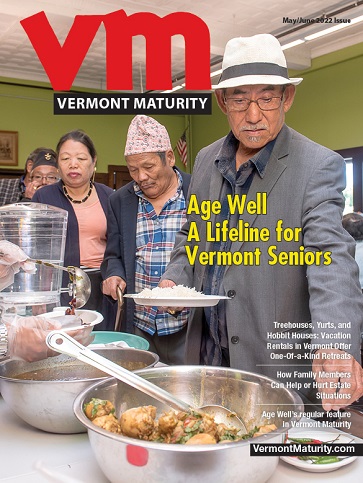
Are you in charge of your personal destiny or is your fate determined by factors beyond your control? This is the question posed by psychologists who study ‘locus of control.’
Mature adults confront several concrete realities that challenge their capacity to direct their personal destiny. A great many seniors must manage a chronic disease and/or the decline of vital functions like memory, hearing, or agility. Managing the loss of close friends further shakes our confidence that our fate lies within our control.
However, adults navigating their 60’s, 70’s and 80’s should take care to ask the right questions. Comparing our physical abilities in our 70’s with our physical capacities in our 20’s and 30’s is the wrong question. Aging takes a toll and adults in later decades have more limitations than we did in our ‘youthful’ adult years.
Here’s the RIGHT question: How can we impact our quality of life in our 60’s, 70’s and 80’s? Do we have the ability enhance the likelihood that our life in later decades will be characterized by vitality, adventure, and camaraderie?
The answer to the initial question does not take the form of “yes” or “no.” This is a game of odds. How can you increase the odds that your quality of life will have more vitality, adventure and camaraderie than might otherwise be the case? Older adults have the means available to them to improve the odds of living a healthy, stimulating life within a rich social network.
First, get active physically and maintain active lifestyle habits. Tom Frieden, M.D., former Director of the Center for Disease Control has said “being active is the closest thing we have to a wonder drug.”
Mature adults need to recognize that the #1 beneficiary of an active lifestyle is your brain. Exercise helps stimulate neurogenesis in the hippocampus which plays an essential role in memory formation and storage. Exercise also stimulates the production of BDNF – a chemical that John Ratey, M.D. of Harvard Medical School calls ‘Miracle Gro’ for the brain.
Learning to do something new promotes brain plasticity. Work on learning a new language, a new musical instrument, or a new sport. Building new neural networks in the brain sustains mental acuity. Tilt the odds of cognitive health in your future by challenging yourself to acquire new skills and knowledge.
In one of the most robust longitudinal studies of healthy aging ever conducted, Harvard researchers identified social networks as one of the most important factors in well-adapted mature adults. We offer a special methodology for readers of Vermont Maturity to enrich their social network by joining a research project we manage that is focused on resilience. Contact us via our website at Resilience-Advocate.com/contact to learn more.
Resilient seniors have fewer chronic health problems, demonstrate more independence in daily living habits, experience lower rates of depression and increased lifespan. How’s that for an endorsement of enhanced quality of life?
Mature adults can make gains on their ‘locus of control’ scale by thinking in terms of improving personal odds for enhanced quality of life. You can start to create an advantage for yourself today by making concrete plans to get moving, activate your social network and tackle new learning challenges. Take charge of your future.
Richard Houston holds a Doctorate in Education and was licensed by the Massachusetts Board of Psychology. He is a graduate of Brown University. He has conducted research on the psychological dimensions of healthy lifestyle behaviors and has had long term consulting relationships with several continuing care retirement communities. You can visit his website at Resilience-Advocate.com.
Related Articles & Free Vermont Maturity Magazine Subscription

Manage the Meaning of Exercise for Increased Success
Sustaining your Brain Health is Easier Than you Thought
The Self-Fulfilling Prophecy Remains Alive and Well in Older Adults







Comment here